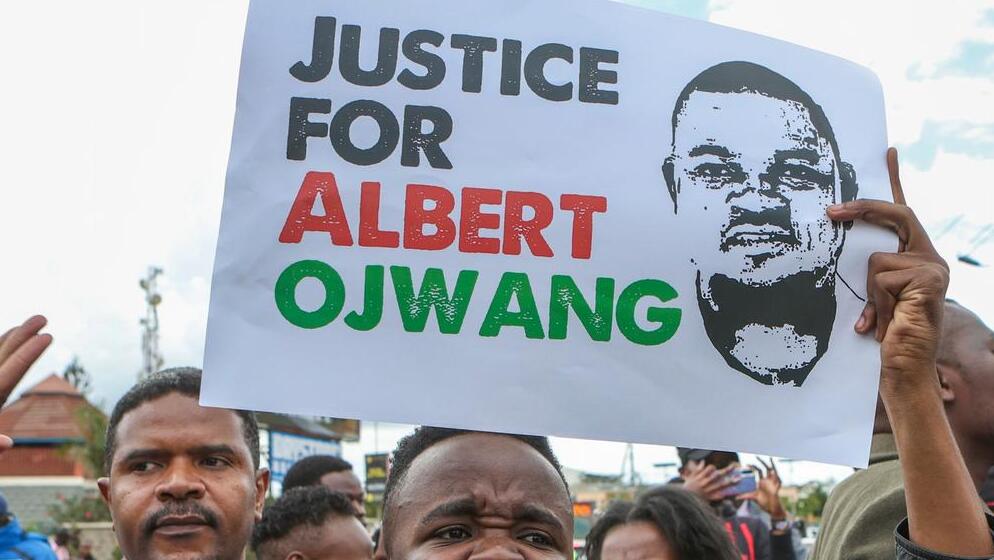
Cameroon–Equatorial Guinea: When a 15-year dispute erupts in the middle of diplomacy
A forgotten dispute resurfaces and threatens to implode relations between Malabo and Yaoundé. A close friend of the Cameroonian presidential couple is maneuvering to seize the Equatorial Guinean vice president's yacht. This is no longer a legal dispute: it's a cold war, disguised as legal proceedings.
An old conflict, a flaming target
The case dates back to 2009–2010. A dispute between Cameroonian companies and Equatorial Guinean entities was settled by an international arbitration decision that remained a dead letter. Fifteen years later, Sylvana Combet, an influential figure in the Cameroonian presidential entourage, is exhuming this judgment to launch, at the end of 2024, a seizure procedure against the yacht "Ebony Shine", the floating flagship of Teodorin Obiang , Vice President of Equatorial Guinea.
The maneuver is based on a decision of the International Chamber of Commerce. A classic legal tool, but in this context, a weapon of diplomatic destruction. Because behind the legal guise, it's truly a show of force.
Ebony shine, an icon of flashy power
The yacht in question isn't just a luxury item: it's a symbol of Equatorial Guinea's power. Teodorin Obiang, already under scrutiny for ill-gotten gains in France, Switzerland, and South Africa, is now seeing an African state directly attack his assets. A first.
The seizure is aimed at hitting where it hurts: the image, prestige, and pride of the Obiang clan. Behind this offensive, Sylvana Combet embodies a parallel diplomacy, where the private interests of the inner circle merge with international proceedings. This is not one state attacking another. It is a clan launching a raid under judicial garb.
Silent but persistent friction in CEMAC
Officially, Cameroon remains within the rules. It relies on an arbitration decision. But for Equatorial Guinea, this action is a slap in the face. The two countries, members of the same monetary and customs union, see their cooperation threatened by this offensive, which short-circuits diplomatic practices.
Yaoundé, seemingly silent, is acting through unofficial channels. In Malabo, the anger is palpable. For the symbolism is brutal: for the first time, an African vice-president's yacht could be seized not by Western justice, but by an African neighbor. An unbearable humiliation for the Obiang regime.
A risky operation
Cameroon has a high stakes. If it imposes this decision, it asserts its legal power and its desire to no longer submit. But it also risks retaliation. Equatorial Guinea could, in turn, attack Cameroonian assets on its soil. The already fragile balance of the CEMAC would be seriously compromised.
This precedent could set a precedent, leading to the judicialization of regional relations. And a climate of insecurity for investors, who will see these proceedings as disguised instability.
Two faces, one cynicism
Combet versus Teodorin: this duel highlights the ambiguities of power in Central Africa. She, a lobbyist without an official mandate but all-powerful in the shadows. He, an extravagant heir, vice-president of a patrimonial regime.
Both embody a clannish, personalized power that misuses legal tools for private ends. Behind this case, it's not about justice. It's about control, revenge, and regional supremacy. The law is now nothing more than a disguise.
Towards the irreversible?
An actual seizure would constitute an unprecedented rupture: one African state imposing an international decision on another regarding a ceremonial asset, via a private third party. Unheard of. And potentially explosive. If this logic prevails, the entire regional stability could fracture under the effect of resurrected disputes.
Already, in Malabo, some are speaking of calculated hostility. In Yaoundé, there is talk of strict enforcement of justice. But words alone will not prevent an escalation.
Diplomacy at the end of its rope
The thread that still connects the two capitals is ready to snap. Embassies are communicating, agreements are holding... but not for long. Each side interprets the facts through its own prism. One sees a judicial coup. The other, a legitimate return on investment.
The slightest spark will suffice. An aborted conference, an unfortunate interview, a seizure carried out in Douala. And this conflict, until now lurking in the shadows, will burst into the open. In Central Africa, diplomacy often depends on little. This time, it's a yacht that threatens the entire edifice.



Leave a comment
This site is protected by hCaptcha and the hCaptcha Privacy Policy and Terms of Service apply.